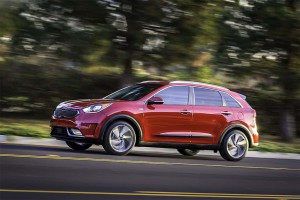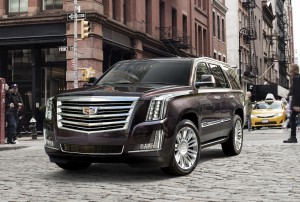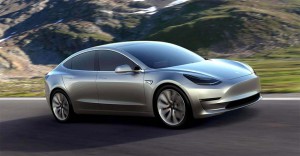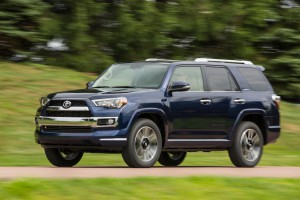
The 2017 Kia Niro received favorable reviews from owners in the latest Consumer Reports reliability study.
Asian automakers once again topped the annual Consumer Reports Automotive Reliability Survey, though there were some notable exceptions in the study which looked at the problems owners have experienced with their 2017 model-year cars, trucks and crossovers.
Toyota and Lexus, perennial charter-toppers, repeated as the most reliable brands, according to Consumer Reports, or CR, which tallied owner surveys covering about 640,000 vehicles from the 2017 model-year. But Kia, a brand long dismissed for questionable quality, came in third, a surge reflected by several other recent studies.
At the other end of the spectrum was Cadillac, ranked the least reliable brand in the annual study by the influential non-profit publication. Cadillac’s big Escalade SUV, meanwhile, tied as the single worst vehicle, in terms of reliability. The other model at the bottom was the much-troubled Tesla Model X.
The Model X has been widely criticized for a range of quality problems, including faulty falcon-wing doors and body panel fit-and-finish. Even so, Jake Fisher, director of auto testing for CR, held out hope for the Tesla’s new Model 3. The California battery-carmaker’s first mainstream sedan is predicted to have “average” quality and reliability. That is, of course, if and when Tesla can solve serious problems at its suburban San Francisco factory that have seriously delayed the ramp-up of Model 3 production.
A closer look at this year’s Consumer Reports results show that there have been some significant shifts in vehicle quality and reliability in recent years.
(To find out how TDB felt about the 2017 Kia Niro, Click Here.)
“There are less engine problems, less suspension problems, less rust problems,” explained Fisher, adding that owners are experiencing “a whole lot more … infotainment problems.”
That’s been an issue across the board. But early adopters, such as Ford and BMW, slammed for balky navigation and Bluetooth systems over the past decade, are finally getting their digital technologies under control, said CR’s automotive testing director. Now it’s latecomers like Toyota and Lexus that are struggling with much the same quality and reliability headaches.
The good news, Fisher stressed, is that carmakers are learning how to correct problems with their infotainment systems rather quickly, while it can take years to fix mechanical problems – such as the dual-clutch transmissions that continue to be a reliability issue on the Ford Focus and Fiesta models.
And things could move even faster in the future, said Fisher, noting that several automakers, including Tesla and Volvo, have begun using over-the-air, or OTA, updates. That allows them to automatically upload software fixes to their vehicles, “without the stress of having (owners have to) take their vehicles to dealers.”

The 2017 Cadillac Escalade finished last in its segment in the Consumer Reports automotive reliability survey.
(Click Here to see why Cadillac is cutting sedans from its line-up to focus on SUVs.)
The 2017 Consumer Reports Automotive Reliability Survey lists five Japanese brands among its top 10, as well as two Korean carmakers. Kia, making its first foray into the top three also had the highest-ranked vehicle in the 2017 study, its Niro hybrid. Audi and BMW were the two European marques, Buick the only American brand in that top tier.
Asian automakers have traditionally scored well in the annual Consumer Reports reliability report, and that may reflect the generally upscale nature of the magazine’s readers. The study is based on what those readers report, rather than random studies such as the J.D. Power Initial Quality Survey.
Power’s IQS has shown a drop in quality among some Japanese brands, notably Toyota and Lexus, though that also reflects the problems those two brands have had with their latest infotainment systems.
Cadillac dropped six spots from CR’s 2016 reliability survey to rank 27thand last.

Despite poor ratings for the Model X, Consumer Reports expects the new Tesla Model 3 will get "average" quality ratings.
Tesla ranked 21st, largely due to the problems with its Model X. The maker’s older Model S sedan was actually one of the more reliable vehicles that CR ranked.
(Investors hammer Tesla as Model 3 production hits “bottlenecks.” For the story, Click Here.)
Motorists shouldn’t be scared away by Tesla’s overall performance, said Fisher, stressing that, on the whole, “Electric cars are very reliable. They tend to have very few problems,” in part because there are so few parts in their powertrains to break. As case in point, he noted that the new Chevrolet Bolt EV was “one of the most reliable vehicles in the whole General Motors fleet.”

